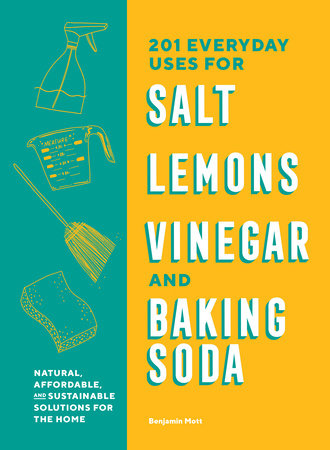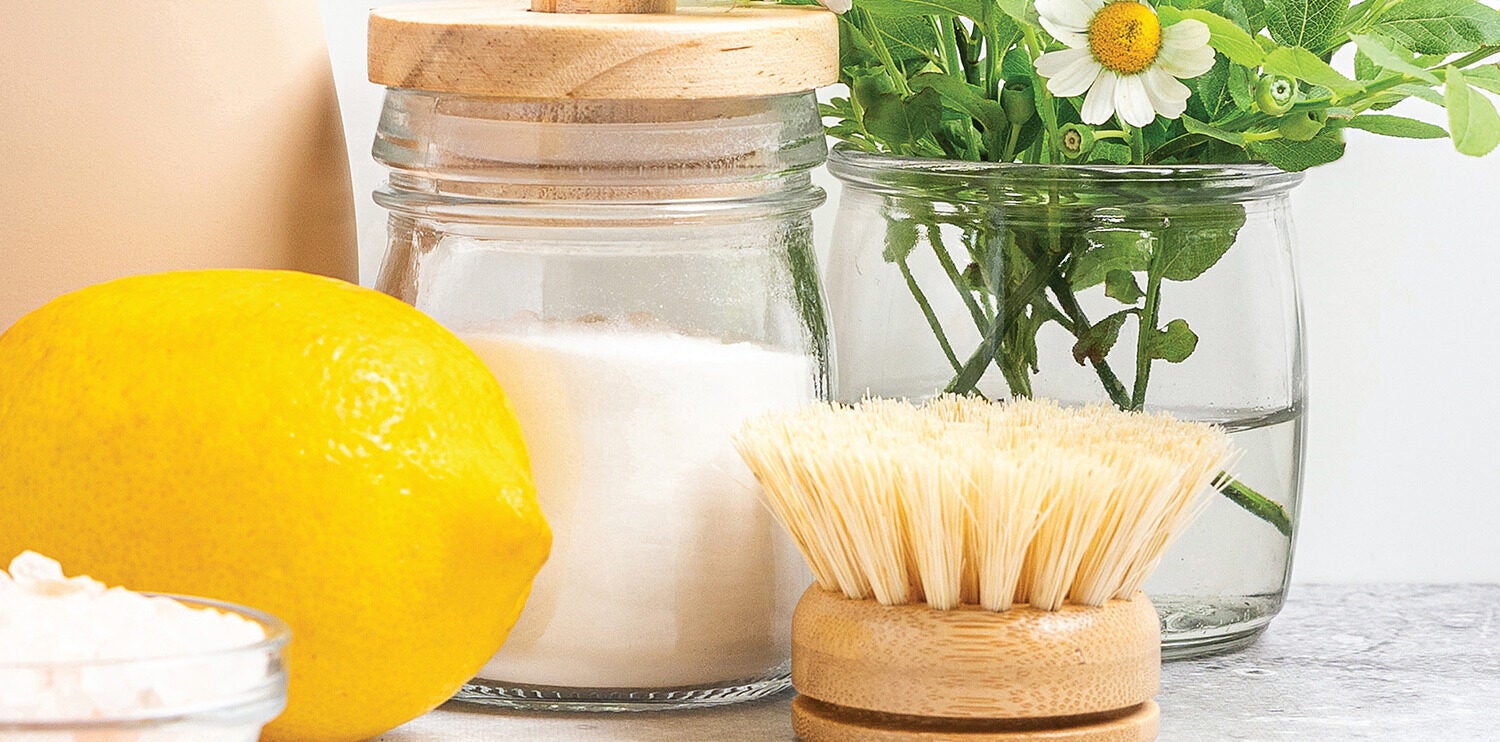Chapter 2: The Kitchen Perhaps the most time-worn cliché about the kitchen is that it is the heart of the home—but like most clichés, it is uttered so often because it’s true. The kitchen is where we wind up spending a lot of our waking hours, preparing meals, grabbing snacks, eating and drinking, and just hanging out. And because it often has a door that leads outside—or is situated close to the entrance to the home, whether a house or an apartment—the kitchen is also a heavily trafficked thoroughfare. Due to all this activity, much of it quite messy, the kitchen probably sees the hardest use of any room in the house. The recipes in this chapter will help combat the chaos.
All-Purpose Cleanser Every cleaning arsenal requires a multipurpose cleanser capable of handling a wide variety of household cleaning challenges, from dirty stovetops to coffee tables, grease-stained clothing to bathroom sinks, and car interiors to most countertops (but not natural stone, many types of which are easily damaged by acids such as vinegar; see
Natural Stone Countertop Cleanser, page 25, for this type of surface). This simple preparation makes a great-smelling, highly effective cleaning solution for countless situations.
NOTE: If you’re in need of a glass cleaner, see
All-Purpose Glass Cleaner (page 70).
• Mix
3 large strips of lemon peel with
2 cups (500 mL) white vinegar in a
glass jar with a tight-fitting lid. Let this mixture stand for
4 weeks, giving it a good shake every couple of days.
• Strain the mixture through a
fine-mesh stainless-steel strainer or cheesecloth and pour into a
clean 16-ounce (500 mL) glass spray bottle.
NOTE: If you don’t have time to wait for the lemon peels to steep, substitute
5 to 10 drops lemon essential oil; the spray will be ready to use immediately.
Stainless-Steel Cleaner Anyone with stainless-steel appliances knows how difficult it is to keep them clean—stainless steel shows fingerprints and other stains, but cleaning it with soap leaves an unsightly film behind. This simple solution takes advantage of baking soda’s mild abrasive qualities to make an effective cleaner that leaves no residue.
• Add
1 heaping tablespoon (15 mL) baking soda to the surface of a
clean, damp sponge. Holding it over the sink, squeeze the sponge to release enough moisture into the baking soda to create a thick paste. Rub the paste onto the surfaces you are cleaning in wide circles. Rinse the sponge and wring it out, and wipe the surfaces clean with the damp sponge. Buff with a
clean, lint-free cloth.
Copper Cleaner Copper cookware is much loved by cooks everywhere—the metal is famously conductive, heating evenly and quickly, and it looks stunning. All this comes at a cost though: copper pots, pans, and bowls are very expensive and, because the metal tarnishes easily, require a lot of maintenance. Luckily you probably have the necessary ingredients for an excellent cleaner in your home right now. Oh, and don’t forget to polish your brass too (antique door handles, I’m looking at you)—brass is an alloy of copper and zinc, so this solution works just as well on all those doorknobs and sculptures.
• Cut
1 lemon in half and wrap each half in a
small piece of cheesecloth. (No cheesecloth? No problem—it works almost as well without it.) Sprinkle
1 1/2 teaspoons (7.5 mL) of salt on each cut surface of lemon and use that side to polish your
copper cookware. Add a little more salt as you go, as needed. Rinse and thoroughly dry with a
dish towel.
Silver Polish Silver flatware and dinnerware are among the most prized possessions in any home, passed down from generation to generation and trotted out for special occasions. Because of all the sulfurous chemicals that have been released into the environment since the Industrial Revolution, however, this beautiful metal tarnishes easily. Many consumer products have been developed to keep silver looking its best, but you have everything you need to clean it right now. (By the way, this works just as well on silver jewelry.)
• Heat
2 quarts (2 L) water to a
boil and pour into a
large, wide bowl. Stir in
1 cup (250 mL) baking soda until incorporated, then add a
2-inch (5 cm) by 12-inch (60 cm) strip of aluminum foil. Lay the
silverware (and
dinnerware that is small enough to fit) into the bowl and soak for at least
30 minutes.
• In a
small bowl, prepare a mixture of
3/4 cup (180 mL) baking soda and
1/4 cup (60 mL) water. As you remove each piece of silverware from the large bowl, apply a small amount of the baking soda paste and rub thoroughly with a
clean, lint-free cloth. Then wash the silverware by hand with mild soap, rinse, and dry.
Copyright © 2022 by Benjamin Mott. All rights reserved. No part of this excerpt may be reproduced or reprinted without permission in writing from the publisher.





















